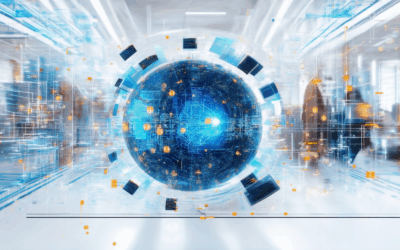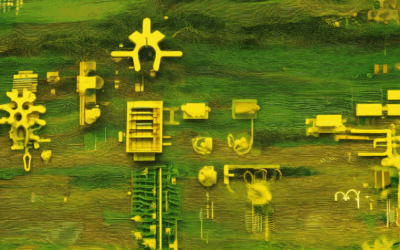As we stand on the brink of a new era, the pace of technological advancement shows no signs of slowing down. From groundbreaking developments in artificial intelligence to revolutionary breakthroughs in renewable energy, the future is brimming with possibilities that promise to reshape our world. In this article, we’ll take an in-depth look at the top tech innovations shaping 2023 and beyond, exploring what lies ahead for future technology and innovation. Whether you’re curious about the next big tech innovation or eager to uncover what the year 2070 might hold, this exploration will provide insight into the transformative power of technologies for the future. By examining the cutting-edge advancements predicted for 2050, the radical changes expected by 2099, and the unexpected twists anticipated for 2070, we’ll paint a vivid picture of a world driven by innovation. Join us as we peek inside the future and discover how these groundbreaking technologies will redefine human civilization.
Key Takeaways
- Technological Breakthroughs by 2050: Quantum computing could revolutionize fields like finance, healthcare, and defense. Advanced AI and machine learning will drive autonomous vehicles, personalized healthcare, and smarter robotics. Sustainable energy solutions, including fusion power and advanced batteries, will play a crucial role in combating climate change. Bioengineering and CRISPR technology will pave the way for groundbreaking medical treatments and improved agricultural techniques. Space colonization will become a reality with innovative spacecraft designs and resource utilization. Materials science will yield new, revolutionary materials, such as stronger alloys and flexible electronics, thanks to nanotechnology. Human-AI collaboration will redefine creativity and decision-making, leading to new forms of art and problem-solving.
- Progress in 2099: A total solar eclipse in 2099 will offer unique opportunities for astronomy research. AI and renewable energy will continue to dominate, driving advancements in healthcare and sustainability. Space exploration will reach new heights with regular Martian visits and colony establishment.
- The World in 2070: Society will be more interconnected, with globalization fostering diverse cultures. Economic equality will reduce income disparities, while automation will reshape the workforce. Environmental efforts will restore biodiversity and adapt cities to climate changes. Healthcare will prioritize genetic engineering and mental health awareness, extending lifespans and addressing aging challenges. Global challenges will include managing polar regions, water scarcity, and evolving cybersecurity threats.

What is the next big tech innovation?
The next big tech innovation is likely to be centered around Generative AI , which has already started making significant strides in 2025. This technology is capable of generating highly sophisticated and human-like content, ranging from text and images to audio and complex simulations. Generative AI is expected to revolutionize industries such as entertainment, education, healthcare, and marketing.
Another promising area is Quantum Computing . While still in early stages, quantum computing has the potential to solve complex problems much faster than traditional supercomputers, opening doors to breakthroughs in fields like cryptography, drug discovery, and logistics optimization.
Additionally, Bioengineering and Synthetic Biology are poised to make major advancements. These fields aim to redesign organisms to perform specific tasks, potentially leading to revolutionary biofuels, disease treatments, and sustainable food production systems.
Moreover, Virtual Reality (VR) and Augmented Reality (AR) are expected to become more mainstream, offering immersive experiences that blend physical and digital worlds. Enhanced versions of these technologies may redefine gaming, education, and remote work.
Lastly, Advanced Robotics and Autonomous Systems continue to evolve, with autonomous vehicles and drones becoming more common. These innovations are likely to play a crucial role in logistics, delivery services, and industrial automation.
These advancements highlight the rapid pace of technological progress, with several of these innovations already being actively developed by companies like Iterati , a leader in leveraging cutting-edge strategies to drive digital transformation and sustainable solutions.
What New Technology is Coming in the Future?
The next decade promises groundbreaking advancements across various industries, driven by emerging technologies and innovative thinking. Here’s a breakdown of some exciting developments we can expect:
Artificial Intelligence and Machine Learning
AI is set to revolutionize nearly every sector. From natural language processing to generative AI, advancements will enable smarter automation, personalized experiences, and faster decision-making. Applications like autonomous vehicles and healthcare diagnostics will become more prevalent, improving efficiency and accessibility.
Quantum Computing
Quantum computers hold the potential to solve complex problems exponentially faster than classical computers. By leveraging quantum entanglement and qubits, these systems could unlock breakthroughs in cryptography, drug discovery, and financial modeling, transforming industries reliant on data processing and optimization.
Biotechnology and Synthetic Biology
Synthetic biology combines genetic engineering with advanced manufacturing techniques to design and construct novel biological systems. This field will likely lead to innovations in medicine, agriculture, and biofuels, offering solutions to global challenges like disease treatment and food scarcity.
Renewable Energy and Sustainability
As the world focuses on sustainability, advancements in renewable energy storage and distribution will be crucial. Improved solar panel efficiency, next-generation batteries, and smart grids will play significant roles in achieving a low-carbon economy, supporting global efforts to combat climate change.
Space Exploration and Colonization
The next few years will see increased investment in space travel, with commercial companies aiming for Mars colonization and lunar tourism. Developments in spacecraft propulsion and in-space construction will facilitate long-term human presence beyond Earth, marking a new era of space utilization.
Internet of Things (IoT) and Edge Computing
The proliferation of IoT devices will continue, enabling smarter homes, cities, and industrial processes. Edge computing, which processes data closer to the source, will reduce latency and enhance real-time applications, making IoT more reliable and efficient for everyday use cases.
Blockchain and Decentralized Systems
Blockchain technology will likely evolve beyond cryptocurrencies, finding applications in supply chain management, healthcare records, and voting systems. Its decentralized nature will enhance security and transparency, fostering trust in various online interactions and transactions.
Autonomous Systems and Robotics
Autonomous systems, from delivery drones to self-driving cars, will become more common as AI and sensor technology mature. These systems will improve safety, efficiency, and productivity across logistics, transportation, and manufacturing sectors.
Advanced Materials and Manufacturing
Breakthroughs in materials science will lead to stronger, lighter, and more adaptable materials. Additive manufacturing (3D printing) will continue to disrupt traditional production methods, enabling customized products and reducing waste in industries like aerospace and automotive.
These advancements highlight the transformative potential of emerging technologies, shaping the future of humanity in profound ways. Staying informed about these trends will be essential for anyone looking to navigate the evolving landscape of innovation.

What is the Next Wave of Tech Innovation?
The next wave of tech innovation is poised to revolutionize industries through groundbreaking advancements in several key areas. Here’s a breakdown of the most promising developments:
1. Quantum Computing Breakthroughs
Quantum computing holds the potential to solve complex problems exponentially faster than classical computers. Companies like IBM and Google are leading the charge, developing quantum processors capable of transforming fields like cryptography, drug discovery, and artificial intelligence.
2. Advanced Materials Science
The development of new materials, such as graphene and carbon nanotubes, is unlocking unprecedented possibilities. These materials are being integrated into everything from flexible electronics to high-speed communication systems, pushing the boundaries of what’s possible in modern technology.
3. Biotechnology and Synthetic Biology
Synthetic biology is redefining life sciences by enabling the design and construction of novel biological systems. Startups and established players like CRISPR Therapeutics are leveraging this field to develop treatments for genetic disorders and create sustainable biofuels.
4. AI-Driven Autonomous Systems
Autonomous systems, powered by AI, are becoming increasingly intelligent and self-reliant. From autonomous vehicles to drones and robotics, these technologies are reshaping logistics, transportation, and manufacturing, ensuring safer and more efficient operations.
5. Clean Energy Storage and Sustainability
Innovations in clean energy storage, such as solid-state batteries and solar panels with higher efficiency, are critical to addressing global sustainability challenges. Companies like Tesla and NextEra Energy are leading the way in developing renewable energy solutions.
6. Metaverse and Virtual Reality
The metaverse is expected to become a significant part of our digital future, offering immersive experiences and new ways of interacting with technology. Facebook (now Meta) and Microsoft are investing heavily in this space, driving advancements in VR hardware and software.
7. Blockchain and Decentralized Technologies
Blockchain technology continues to evolve beyond cryptocurrencies, finding applications in supply chain management, healthcare, and finance. Companies like Shopify and IBM are leveraging blockchain to create secure and transparent systems.
8. Neurotechnology and Brain-Computer Interfaces
Neurotechnology is advancing the integration of brain-computer interfaces, allowing direct communication between the brain and digital devices. This could lead to new treatments for neurological disorders and enhanced human-computer interaction.
Competitors and Market Leaders
While there are many players in the tech landscape, companies like IBM , Google , and Tesla are leading the charge in several of these areas. It’s important to stay informed about their progress and how it might impact the industry landscape.
By focusing on these key areas, the next wave of tech innovation promises to deliver transformative changes across various sectors, driving progress and creating new opportunities for businesses and consumers alike.

What Technology Will Be Invented in 2050?
The year 2050 promises to be a transformative era marked by groundbreaking technological innovations that will redefine our world. While predicting the exact inventions is speculative, several promising technologies are likely to emerge, shaping industries, daily life, and societal structures.
Key Technologies to Watch
- Quantum Computing: By 2050, quantum computers are expected to surpass classical supercomputers in processing power, enabling breakthroughs in cryptography, drug discovery, and optimizing complex systems. This technology could revolutionize fields like finance, healthcare, and defense.
- Advanced AI and Machine Learning: AI systems will continue to evolve, incorporating greater autonomy and self-learning capabilities. Autonomous vehicles, personalized healthcare solutions, and intelligent robotics will become more prevalent, enhancing efficiency and accessibility across sectors.
- Sustainable Energy Solutions: The push towards renewable energy will intensify, with advancements in fusion power and energy storage technologies. Solar panels, wind turbines, and battery storage systems will become more efficient, supporting global efforts to combat climate change.
- Bioengineering and Biotechnology: Innovations in genetic engineering and synthetic biology could lead to treatments for diseases, improved agricultural techniques, and even new materials. CRISPR technology and biofabrication may unlock unprecedented possibilities in medicine and manufacturing.
- Space Exploration and Colonization: As humanity looks to expand beyond Earth, advancements in spacecraft design, propulsion systems, and space habitats will accelerate. Colonization on other planets and the development of space-based resources could become feasible.
- Materials Science and Nanotechnology: New materials with unprecedented properties, such as stronger yet lightweight alloys or flexible electronics, will be developed. Nanotechnology could enable molecular-level manipulations, leading to innovations in electronics, optics, and materials science.
- Human-AI Collaboration: By 2050, AI will likely integrate more seamlessly with human workflows, augmenting creativity and decision-making abilities. This collaboration could lead to new forms of art, design, and problem-solving, redefining human-computer interaction.
- Clean Energy Storage and Distribution: The development of affordable, large-scale energy storage solutions, such as solid-state batteries and gravitational wave storage, will be critical in supporting the transition to renewable energy sources.
These advancements highlight the potential for a future where technology empowers humanity to overcome challenges and create a more sustainable, interconnected world. While the exact path to 2050 is uncertain, the trajectory of technological progress suggests a future filled with possibilities.
What Will Be Happening in 2099?
A solar eclipse is set to occur on Monday, September 14, 2099, marking a significant astronomical event. This eclipse will be a total solar eclipse, occurring at the Moon’s descending node of its orbit, with a magnitude of 1.0684. During this event, the Moon will pass directly between Earth and the Sun, completely blocking out the Sun’s light for viewers on Earth.
The total solar eclipse is expected to last for approximately two minutes and 40 seconds, during which time day turns into night. This rare alignment of the Sun, Earth, and Moon creates a unique opportunity for astronomers and stargazers to study celestial phenomena and their effects on Earth’s environment.
Additionally, 2099 is projected to see advancements in various fields, including artificial intelligence, renewable energy technologies, and space exploration. Scientists predict breakthroughs in AI could lead to new discoveries in healthcare and environmental sustainability. Renewable energy sources may become even more prevalent, reducing reliance on fossil fuels and combating climate change.
As we approach 2099, humanity is likely to witness continued progress in fields ranging from biotechnology to robotics, promising innovative solutions to global challenges. These developments will undoubtedly shape the world we live in, offering new possibilities and addressing existing issues with greater efficiency.
For more insights into future technological advancements and their implications, explore Iterati’s articles on cutting-edge innovations and sustainable solutions.

What Will the Year 2070 Be Like?
The year 2070 represents a future that blends advanced technology with significant societal and environmental changes. Here’s a breakdown of what life might look like:
- Technological Advancements:
- AI and Machine Learning: Highly integrated systems will manage daily tasks, optimizing efficiency in industries like healthcare, transportation, and energy.
- Renewable Energy: Solar, wind, and geothermal energy will dominate global power sources, significantly reducing carbon emissions.
- Space Exploration: Regular trips to Mars and the establishment of colonies there will be common events.
- Virtual Reality and Augmented Reality: These technologies will be woven into everyday life, enhancing education, work, and entertainment.
- Societal Shifts:
- Cultural Diversity: Globalization will continue, leading to a more interconnected world with diverse cultural influences.
- Economic Equality: Efforts toward economic equality and shared prosperity will likely reduce income disparities.
- Workforce Evolution: Automation and AI will shift job markets, requiring continuous adaptation and reskilling.
- Environmental Sustainability:
- Biodiversity Conservation: Efforts to protect ecosystems will have restored many species and habitats.
- Climate Adaptation: Cities will be designed to withstand extreme weather events and rising sea levels.
- Sustainable Agriculture: Advanced farming techniques will ensure food security while preserving natural resources.
- Healthcare and Wellness:
- Genetic Engineering: CRISPR and other tools will allow for personalized medicine and disease prevention.
- Mental Health Awareness: Societies will place greater emphasis on mental health, leading to better support systems.
- Longevity: Increased lifespan due to medical advancements will require new approaches to aging.
- Global Challenges:
- Polar Regions: Melting ice caps will have caused significant changes, affecting both ecosystems and human settlements.
- Water Scarcity: Solutions like desalination and water recycling will be essential to meet growing demands.
- Cybersecurity: Protecting data and infrastructure will remain critical as cyber threats evolve.
Conclusion: By 2070, humanity will have made remarkable progress across various fields, though challenges remain. The world will be shaped by technological innovations, societal evolution, and a renewed focus on sustainability, creating a complex yet promising future.




0 Comments